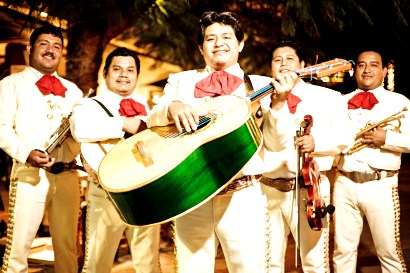Spanish Comparatives and Superlatives
Let’s talk about the best band of all time, who is the oldest person in your class, and how your friend’s car compares with yours. You can compare things just as easily in Spanish as you can in English.
Understanding Spanish Comparatives and Superlatives
You should already be familiar with the concept of good, better, and best. When you’re talking about one thing, it’s good. When you’re comparing it to something else, it’s better. When you say that it is better than anything else, it’s the best.
If you understand this, you already know what a comparative and a superlative are.
- Words that compare one thing to another (e.g., better, older) are called comparatives.
- Words that put something at the top or bottom of the class (e.g., best, oldest), are called superlatives.
Below are some common Spanish adjectives with their corresponding comparatives and superlatives.
Important! Perfect Your Pronunciation With Rocket Record
Important! Remember What You Learn
Ready to Start Learning Spanish?
(You should also know that bien and mal share the same construction as bueno and malo.)
Let’s say that you want to talk about your favorite soccer team.
"Better than" and "Worse than" in Spanish: MEJOR QUE and PEOR QUE
When you want to compare the age (older, younger) or quality (better, best) of two things, you will use the comparative form of the adjective plus than. For example:
If you want to say, for example, that your sister is older than you are, you will say, Mi hermana es mayor que mí.
Por ejemplo:

The Best in Spanish: LA MEJOR
If you want to say that your sister is the oldest in your family, you will simply add the article “the” to the comparative form of the adjective. The sentence becomes: Mi hermana es la mayor.
Por ejemplo:
You will notice that the word de is often used with superlatives. When used after a superlative, de can mean “in” or “of.”
Por ejemplo:
Notice that in the second example, de has combined with el to form del. This is identical to the formation of al from a and el. Anytime you see de and el together, remember:
de + el = del
The Most of All: MÁS DE
You can also form superlatives by talking about the strongest, coolest, fastest thing of all. Whereas you form these superlatives in English by adding an –est to the end of the adjective or adverb, you form them in Spanish by using the word más instead.
Más means most. If you wish to talk about “the hottest day of the summer” in Spanish, you’ll have to say “the day most hot of the summer.” Sound strange?
Remember that in English, not all adjectives can be transformed with an –est ending. You can’t say “beautifulest” or “expensivest”! In those cases, you form the superlative just as it is done in Spanish: you talk about the “most beautiful” or the “most expensive.”
That’s exactly how it’s done in Spanish. All other superlatives will be formed using the sentence construction below.
noun + más + adjective or adverb + de + noun
In Spanish, then, the phrase “the hottest day of the summer” will become:
el día + más + caluroso + del + verano
Por ejemplo:

Super Cool: The Ending -ísimo
In Spanish, there’s another way of expressing how something is just the “most-est.” You can intensify the meaning of any adjective by adding the ending -ísimo.
This is the English equivalent adding a “very” or “super” before the adjective.
Por ejemplo:
More than and Less than in Spanish: MÁS QUE and MENOS QUE
Other comparisons you will make will be of the greater and lesser sort. In other words, you will say that something has more or less of a quality than the other thing. For example,
- "Julie has more pens than Matt."
- "San Francisco has fewer people than Los Angeles."
- "When it comes to shoes, Annette has more than her sister."
Notice that the words “more”* and “less” are followed by a “than.” In Spanish, it’s just the same, but instead of talking about “more than" you will talk about más que.
más que "more (or greater) than"
menos que "less (or fewer) than"
Por ejemplo:
Expressing How Things are Alike in Spanish: TAN COMO and TANTO COMO
You can also use comparatives to describe how similar two things are. For example, you might wish to say:
- "You are as nice as your sister."
- "I have as many toys as you."
Expressions like tan … como and tanto … como help you do that.
When you compare two things that are similar in English, you often use "as … as", whether or not the word that the two things have in common is a noun, adjective, or adverb. In Spanish, however, there is a distinction.
- Use tan … como for “as … as” when the characteristic in common is an adjective or adverb.
- Use tanto … como for “as many … as” or “as much … as,” when the characteristic in common is a noun.
Go back and look at the sample sentences in English above. Can you guess which would use tan … como and which would use tanto … como?
- Eres tan amable como tu hermana. (“nice” is an adjective)
- Tengo tantos juguetes como tú. (“toys” is a noun)
Remember that the word tanto must reflect the gender and quantity of the noun it describes.
- Tengo tanto dinero como él. "I have as much money as him."
- Ella tiene tantos zapatos como su amiga. "She has as many shoes as her friend."
- Nosotros tenemos tanta comida como los otros. "We have as much food as the others."
- Ustedes tienen tantas cosas como nosotros. "You have as many things as we do."
Check out Spanish grammarfor more useful info! Here are some recommended lessons:
- This lesson breaks down Spanish nouns for you!
- Spanish comparative and a superlative may sound confusing, but this lesson will help clear things up!
Mauricio Evlampieff: Rocket Spanish
